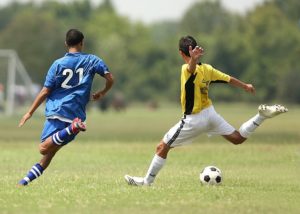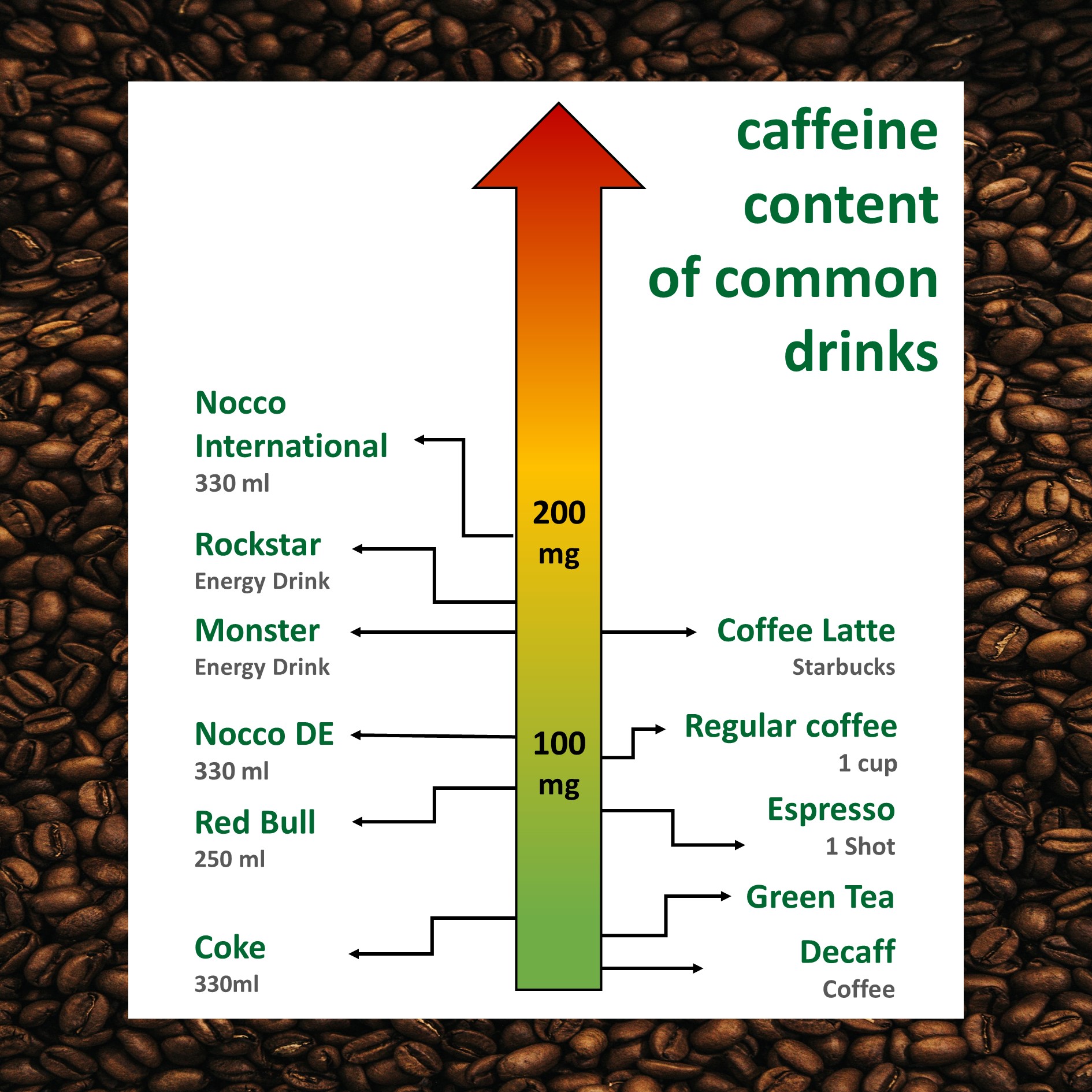Introduction
Not without My Coffee!
The morning espresso or the energy drink before the starting gun: caffeine is a must. In terms of taste, the different drinks could not be more different, yet they all have the same effect: the “kick”. Caffeine is responsible for this.
Because of its stimulating effect, caffeine was even on the WADA list of prohibited substances until 2003.
For many athletes, the targeted administration of caffeine is an integral part of “pre” and “intra” workout supplementation.
- But what is caffeine anyway?
- And how does it work in our body?
- Does it really make us more efficient?
- Or does it only work for certain sports?
- Is there an optimal dosage? And does this differ from person to person?
- What about side effects?
We want to answer these questions for you in this article. As always, based on the current study situation with linked sources.
What are the Mechanisms of Action?
During energy supply, adenosine is produced during the breakdown of ATP. After heavy physical exertion, such as a 10-kilometer run, in which the body cells need a lot of energy in the form of ATP, the adenosine level rises. Adenosine has a dampening effect on the body’s cells, as the release of the nerve messenger substances noradrenaline, dopamine and acetylcholine is inhibited. Adenosine therefore informs the subsequent cells that it is now time to work a little less.
Caffeine therefore indirectly causes an increased release of neurotransmitters, such as adrenaline and noradrenaline, which can lead to a slight increase in blood pressure and heart rate for a short time. Similar effects occur in so-called
“fight or flight”
situations: these are situations in which we are exposed to dangers and either run away or fight. This is supposed to help us mobilize energy as quickly as possible in order to be as efficient as possible. Physiologically, caffeine has similar effects (
1
).
Adenosine has a protective function by protecting the body from overexertion. This protective function is down-regulated by caffeine.
Chemically speaking, caffeine (C8H10N4O2) is very similar to adenosine (C10H13N5O4). Caffeine docks to the adenosine receptors and blocks those locks that are actually made for the key adenosine. Caffeine therefore displaces the adenosine that is supposed to dampen the nerve cells. This makes us tire more slowly and feel fitter. Furthermore, by occupying the so-called A2A receptors, caffeine reduces the release of dopamine, which makes us even more active (
1
).
What Effect Does Caffeine Have on Athletic Performance?
1) By blocking the adenosine receptors, there is an increased release of endorphins, an increased neuromuscular activation, which in turn reduces the subjectively perceived stress / pain sensation (1, 2).
2) In addition, an older study found that caffeine increases the metabolic rate of fatty acids (3), which is hoped to save the stored carbohydrates in the muscles (glycogen) for more strenuous demands (4). However, this theory has now been refuted (5, 6).
3) Caffeine also increases calcium release, which is needed for the development of strength from the contracting muscle (7).
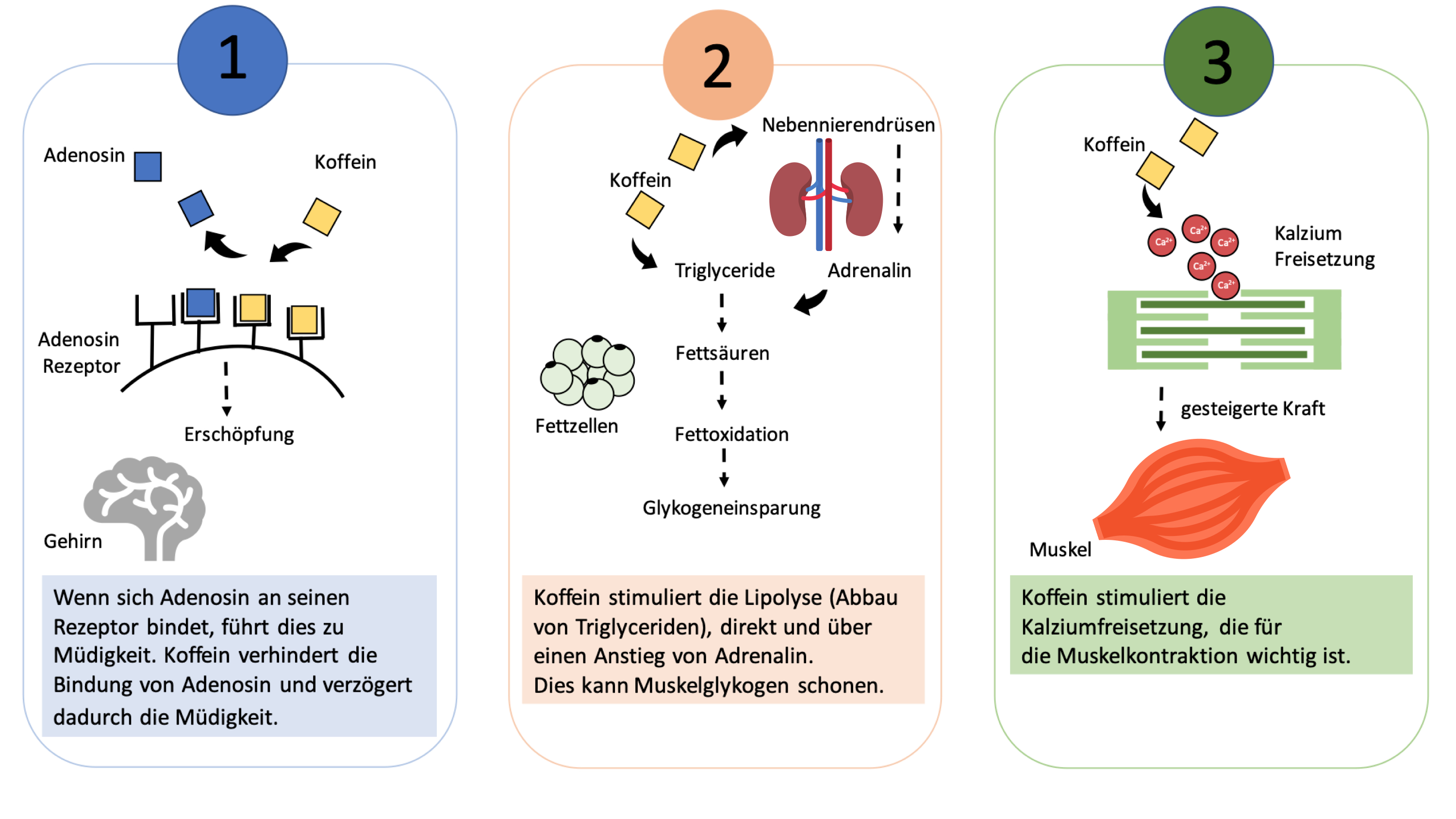
What Effect Does Caffeine Have on Athletic Performance?

Endurance Sports
Studies show that caffeine supplementation improves endurance performance during time to fatigue, such as during a treadmill run to exhaustion (
8
).
In addition, the study situation suggests that caffeine can lead to performance-enhancing effects in competitive situations in endurance athletes. A large number of studies have shown in all endurance sports (cycling, running, rowing, swimming, cross-country skiing) that caffeine improves performance by 2-4%. The athletes consumed between 3-6 mg/kg caffeine in capsule or powder form 60 minutes before exercise (
9
). For an average runner who runs 10 kilometers in 50 minutes, this could mean an improvement of 1-2 minutes.
It is also interesting that the effectiveness increases with increasing duration of exercise
(10)
Recommendation for endurance athletes: 2-5mg/kg body weight > 70kg person = 140-350mg caffeine
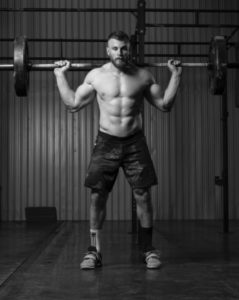
Strength Training
Fatigue is also delayed during strength training, so that more repetitions can be performed until muscle failure. However, the performance-enhancing effect is significantly lower at 1 to a maximum of 2% than in endurance sports (
11
), and only when large muscle groups are stressed, as is the case with squats or bench presses.
Recommendation for strength athletes: 4-5 mg/kg body weight > 80 kg person = 320-400 mg caffeine
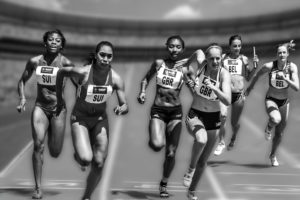
Power, Sprints, Intervals
Even if the study situation regarding the influence of caffeine on short, supramaximal and repeated sprint ability is not as clear as with endurance sports, there are results that at least partially speak for a positive effect.
In a systematic review in which caffeine intake and high-intensity loads of less than 5 minutes duration were observed, a performance advantage was found in approximately 65% of the studies (
12
). Whereby the effect seems to be more pronounced with short loads at maximum intensity (< 1 min) (
13
) than with submaximal loads of 1-5 min (
14
).
Recommendation for sprinters: 4-5 mg/kg body weight > 80kg person = 320-400mg caffeine
Game Sports
The absolute running performance of well-trained team sport athletes was also improved by 8.5% in the first half and 7.6% in the second half after taking caffeine. The athletes consumed 6 mg/kg caffeine (i.e. a very high dose) 50 minutes before warming up and then completed a sprint protocol for 2x 36 minutes, which was intended to imitate the load in ball sports such as football or basketball (
15
).
To what extent caffeine also affects mental or sport-specific skills, such as throwing accuracy, is less clear. While in basketball, for example, a small improved 3-point throw rate could be determined (
16
), a slightly more accurate pass rate was found in a simulated 90-minute football game (
17
). The most obvious hypothesis is that caffeine only has a positive effect on sport-specific skills if there has been a high and long-lasting physical load beforehand.
In a recently published systematic review and meta-analysis, an improved subjective perception of one’s own energy level and the performance of skill exercises was observed (
18
).
Recommendation for game sports athletes: 2-4mg/kg body weight > 70kg person = 140-280mg caffeine
Typical Drinks and Their Caffeine Content
We have numerous ways to consume caffeine. The selection of the list refers only to the common drinks. It must be taken into account that the caffeine content of coffee depends on numerous factors such as the coffee variety or the preparation. A small overview of the most popular drinks can be found in the following graphic.
Depending on the coffee variety and preparation, the caffeine content can vary greatly. An analysis of 97 different coffee varieties showed that the caffeine content varies between 24 – 214 mg caffeine. The average amount was 106 mg (
19
).
Even with the same coffee variety, the caffeine content varies greatly. Therefore, it is difficult for athletes to estimate the exact amount of caffeine in coffee.
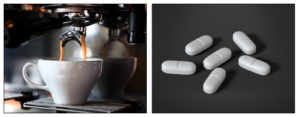
Coffee vs. Caffeine in Tablet Form
Whether the athlete prefers the taste of coffee or the ritual with the cup of coffee before the competition or the simple intake of a capsule is up to him/her. If the choice falls on the drink, the athlete can only estimate how many milligrams of caffeine he/she is taking, while the dose is clearly determinable when taking the capsule.
Nevertheless, taking a caffeinated drink has the same effect as taking a capsule, as long as the caffeine content is identical – see the following graphic (
20
).
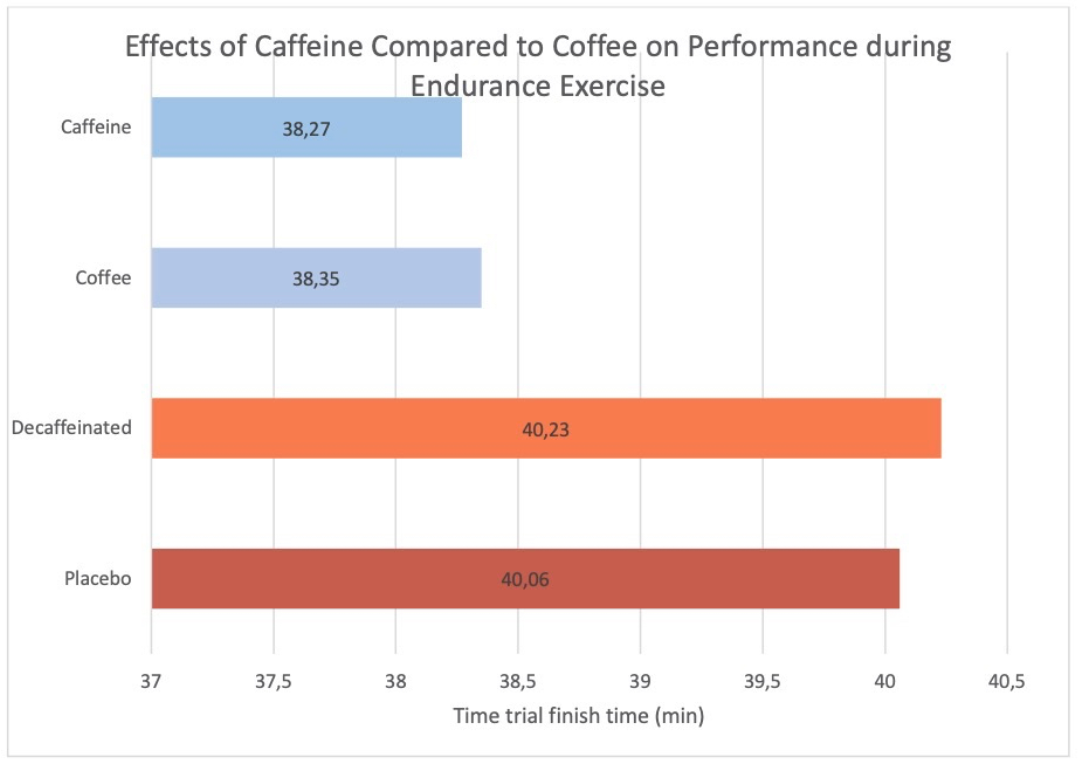
If you want to be on the safe side (e.g. before a competition), you should rather take a caffeine tablet. In everyday life, the athlete must then decide for himself/herself whether he or she is willing to do without coffee as a stimulant before training, or accepts a slight deviation from the optimal caffeine dosage when consuming coffee.
Side Effects
The higher the dose, the greater the probability of possible side effects, such as slightly increased blood pressure, headaches, increased heart rate, nausea, stomach discomfort and insomnia. A limit that should not be exceeded is often given as 9/mg per kg body weight. However, such side effects can also occur at lower doses (
1
).
The study situation also suggests that a dosage higher than 6mg/kg does not bring any further performance increase. From a dose of 20-40mg/KG body weight, a toxic effect even occurs (
20
).

Caffeine and Sleep
The time of intake should be urgently observed in order not to negatively influence sleep and thus regeneration. The half-life, i.e. the time it takes for the body to break down half of the amount absorbed, is very variable in relation to caffeine and averages 3.5 hours. However, sleep quality and the time it takes to fall asleep can be negatively affected even 6 hours after ingestion (
21
).
Genetic Differences
Some people react more sensitively to caffeine than others, as it is not metabolized equally quickly by everyone due to genetic factors. Accordingly, some people need a higher dose to feel an effect or vice versa a lower dose (
22
). Based on personal sensitivity to caffeine, the distance between caffeine intake and going to bed should also be chosen.
Due to individualr differences in the absorption and breakdown of caffeine, a cautious approach to the desired target dose is expressly recommended.
The intake should also be chosen so that the athlete does not experience any negative effect on sleep and any intake should be tested in everyday training to rule out possible side effects in competition.
Conclusion
- The targeted intake of caffeine can definitely have a positive influence on performance in numerous sports.
- Whether coffee or capsule – the form of caffeine intake is not decisive with regard to the effectiveness of caffeine. However, the caffeine content of coffee cannot be determined exactly.
- The dosage recommendation is between 2–5 mg/kg body weight and should be taken about 60 minutes before exercise.
- Supplementation should be tested in training due to the different tolerability and slowly increased to the target dose
- The amount of caffeine ingested should not exceed 9 mg/kg.
- When taking it, the influence of caffeine on sleep should be taken into account and regular intake in the evening should therefore be avoided.

